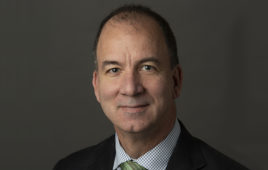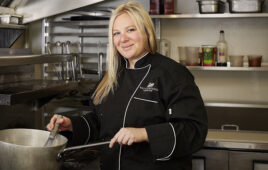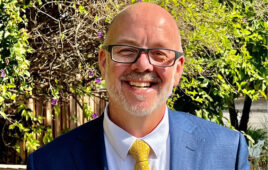People will forget what you said. People will forget what you did. People will NOT forget how you made them feel.
Mentor, wisdom, and leader are often buzzwords people can’t completely describe. Perhaps by using them so often, we soften their meaning. Our vocabulary has become muddied with extremes thanks to social media’s need to catch our attention with “powerful” soundbites.
Everyone seems to use “leader” instead of “manager” or “supervisor.” Maybe those latter terms don’t sound strong or important enough.
As a chef, my food has been described as “inedible.” It has also been described as “the best thing I have ever put my mouth.” My guess is the words “great,” “pleasing,” or “disagreeable” weren’t bold enough for my guests’ descriptions.
The term “wisdom” has often been associated with older generations. While some traditional cultures take comfort in mature generations and the knowledge and wisdom they’ve gained, younger societies yearn for quick, new, and responsive ideals. The independence we have placed on our children leaving the nest, and making their own mistakes, often kicks the notion of wisdom to the curb.
“Mentor” is a conundrum to many, both personally and professionally. People are often unsure of who a mentor is, when they appear, or how one should interact with them. This validates the theory that most mentors are simply reflections of ourselves and our beliefs.
Mentors are timeless, often appearing and disappearing without our notice. A mentor’s influences differ in each episode of life.
I’ve never talked about one of my most accomplished mentors, which signifies how fluid his time was with me. Most might guess he was from food and beverage, as these positions defined my career for forty years. Numerous individuals turned mentors were patient, kind, and understanding in my career journey—this individual included. They often knew what I needed before I was mature enough to recognize or apply the lessons.
My mentors were fellow employees, peers, bosses, community icons, and spiritual beings. They became mentors because I was available, open, and curious about their influences before I could benefit from the lessons they shared.
In humor, the word “spicy” often describes a person who is sarcastic or sassy. Most of my mentors described me as “ghost pepper hot.” A great colleague, Brian Gullbrants, once told a prospective employer, “You will want to be very clear with Lawrence, or you can expect he will move at lightning speed without clear instruction.”
Mr. Ezzat Coutry became my mentor when returning as General Manager of the Ritz Carlton. He had been President of a previous hotel brand and was a long-term Marriott leader. He was brought back to the brand by Mr. Marriott to assist with integrating our brands. And part of his strategy was a brand orientation at the Naples Hotel under the legendary general manager, Mr. Staros.
During this period, he would sit in various executive sessions, listening more than talking. He took direction. He simply had the confidence to be a student of the orientation mission, an orientation that included executive team interviews with me as executive chef.
He came down to the kitchen, asking when he could meet. Looking back, I should have asked when he was available. Instead, I said, “I am available at 8 am or 8 pm only.” He smiled and said, “See you tomorrow morning. Thanks for making time.” One never knows who they are talking to, and the meeting sheds light on that. He only asked questions of me, my craft, and the processes. He never touched on his Google-worthy impressive past.
This interaction led to a privileged relationship with Mr. Coutry for ten years. Each time I was in his presence, I felt cared for. He has become a keen professional influence on such icons as Mr. Marriott, Mr. Joel Robuchon, and Mr. Ferdinand Metz.
The beauty of life is that we will never be short of mentors if we desire to have them. But we must be open to the relationship and receptive to the lessons.



